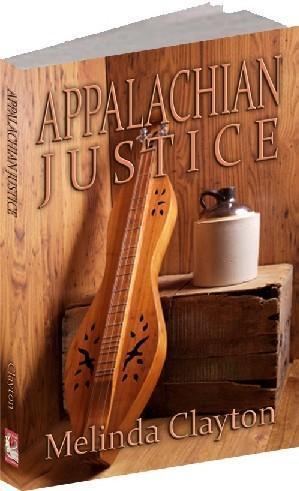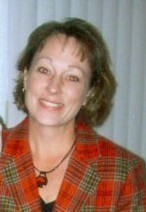Author interview: Melinda Clayton
I am starting a series of published authors' interviews. I plan to post one interview per week, usually on Wednesdays. I will endeavour to choose budding as well as established authors from a variety of genres. Today's interviewee is Melinda Clayton, a licensed psychotherapist and the author of Appalachian Justice. Melinda blogs at http://authormelindaclayton.xanga.com
 Jerome: What can you tell us about Appalachian Justice?
Jerome: What can you tell us about Appalachian Justice?
Melinda: In memoir form, Appalachian Justice tells the story of Billy May Platte, a half Irish, half Cherokee woman who learned the hard way that 1940s Appalachia was no place to be gay. As Billy May explains, "We was sheltered in them hills. We didn't know much of nothin' about life outside of them mountains. I did not know the word lesbian; to us, gay meant havin' fun and queer meant somethin' strange."
In 1945, when Billy May was fourteen years old and orphaned, three local boys witnessed an event that called Billy May's sexuality into question. Determined to teach her a lesson she would never forget, they orchestrated a brutal attack that changed the dynamics of the tiny coal mining village of Cedar Hollow, West Virginia forever.
Jerome: Who are your readers?
Melinda: What a great question! My readers tend to be both male and female, and are overwhelmingly comprised of people who want to feel a story. In other words, they want to be moved in some way, whether through outrage, sadness, or joy. They want to be active participants in the experience of the story.
Jerome: What was your journey as a writer?
Melinda: It's been an odd one. I'm a licensed psychotherapist and worked with clients  and in management in the mental health field for many years. When my children were small, it just became too difficult to be on emergency call all the time while trying to be available for them. I decided to take some time off to return to school to earn my doctorate. I had some free time on my hands, and I had always loved to write, and always told myself that someday I would write a novel. I began by selling articles to a variety of online and print magazines, covering relationship and mental health topics. From that, I went to writing short stories. I think several years of doing those things helped to prepare me for publication of a novel.
and in management in the mental health field for many years. When my children were small, it just became too difficult to be on emergency call all the time while trying to be available for them. I decided to take some time off to return to school to earn my doctorate. I had some free time on my hands, and I had always loved to write, and always told myself that someday I would write a novel. I began by selling articles to a variety of online and print magazines, covering relationship and mental health topics. From that, I went to writing short stories. I think several years of doing those things helped to prepare me for publication of a novel.
Jerome: Do you follow a specific writing process?
Melinda: I do. I find my brain works best early in the morning, so that's when I do research. Appalachian Justice takes place in a tiny coal mining village set deep in Appalachia, and although my mother's family is from the area, I still had to research the history and geography of the region. I also had to research the history of the Cherokee in that area. Once I'm satisfied with my research, I write until mid-afternoon. After that, the kids are home from school and the writing pretty much takes a backseat.
Jerome: Where do you find inspiration?
Melinda: Without a doubt, my inspiration comes from the hundreds of clients with whom I've worked over the years. I'm a psychotherapist by training, and I like to explore not only behaviors but the motivations behind those behaviors. Sometimes, I also like to shock people out of complacency by reminding them that ugliness is out there. Life can be pretty brutal. Fortunately, it can also be very beautiful.
Jerome: Who are your favourite authors?
Melinda: I have pretty eclectic tastes, so I like authors from several different genres. I love Ann Rule for true crime. I love everything John Steinbeck, because he makes me think, and he also loved to explore motivations. Stephen King has always been a favorite for the horror genre. And Jodi Picoult, Barbara Kingsolver, and Anita Shreve are some of my favorites for women's fiction.
Jerome: Is there a book you wish you had written? Which one?
Melinda: There are so many books I love, but one of my favorite contemporary novels is The Pilot's Wife, by Anita Shreve. The situations the protagonist finds herself in, and the choices she has to make, are gripping.
Jerome: Do you have any tips for budding writers?
Melinda: The single most important tip I have is for budding writers to revise, revise, revise. When you think you have a perfect document, set it aside for a couple of weeks and then go back and read it again. Chances are you'll find things that need to be changed.
Jerome: What are you working on at the moment?
Melinda: I'm working on the sequel to Appalachian Justice. Whereas Appalachian Justice was described by one reviewer as a fictional memoir, the sequel, working title Return to Crutcher Mountain, is best described as a mystery.








Jerome Parisse's Blog
- Jerome Parisse's profile
- 25 followers



